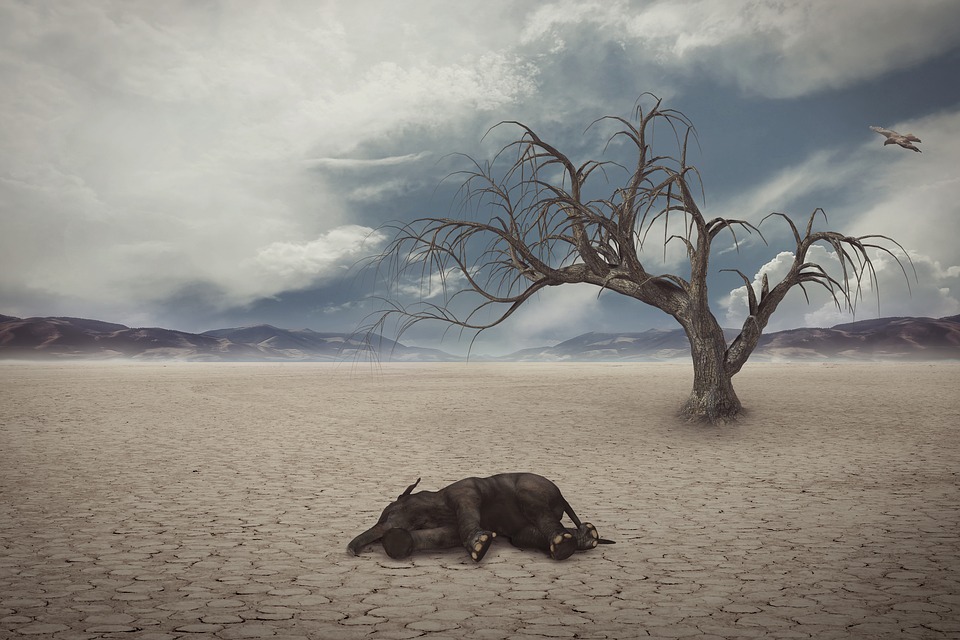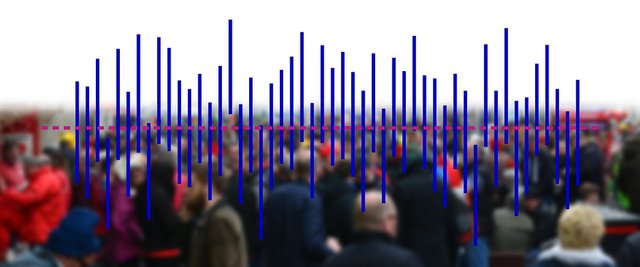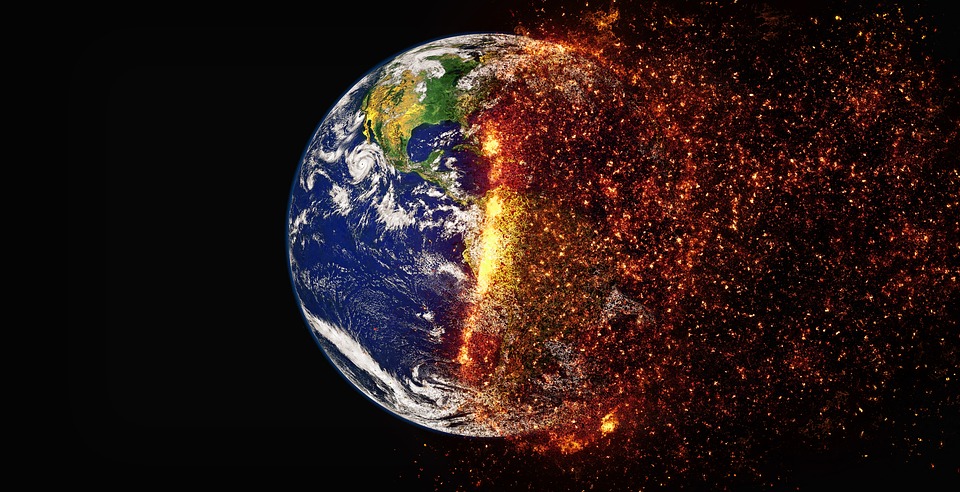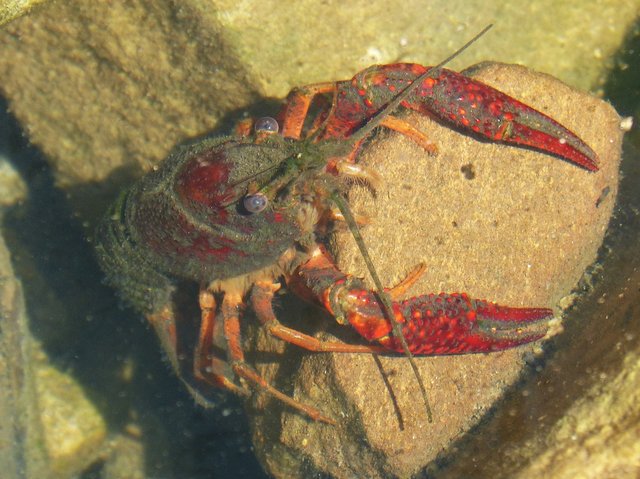Are humans currently causing a new mass extinction of species?
Extinction is one of the most serious , dangerous , but also mysterious phenomenon that has ever happened on Earth. The world’s first known mass extinction occurred about 540 million years ago, and it was called the Ordovician-Silurian extinction, where, according to scientists, a large part of the earth was ‘’covered’’ in ice, and a countless of sea creatures died. But, on the contrary of what the scientists have declared, there are some theories , which suggest that there was an enormous influence from the plants that were growing on Earth, and the carbon dioxide, who was ‘’unleashed’’ in the air, caused the sudden ‘’drop’’ of the temperature. Also , they indicate that the fall in the sea level was a result of the range forming at the Appalachian mountain. Yet, until now there are many questions that still remain unanswered, especially about how , or why this massive event happened. However, these kind of ‘’happenings’’ tend to leave a ‘’trade mark’’ on the Earth , and make an evolutionary change where new species begin to develop.
.jpg)
ImgCredits-pixabay.com
Today , we are ‘’witnesses’’ of the ,,ugly truth’’ that our planet is in the ‘’heart’’ of a mass extinction in plants and animals. It is frightening , but scientists estimate that we are currently losing species at 1,000 to 10,000 times, and since the loss of the dinosaurs 65 million years ago, they alert that this extinction is going to be one of the worst ‘’waves’’ of death for all species. Unfortunately, unlike in the past when these massive losses of species occurred under the impact of natural conditions, such as sudden climate shifts, cosmic radiation, volcanic eruptions or epidemic diseases, now 99 percent of species are in great life danger just from human activities.
So, the question is , who are these future human ‘’threats’’ for the species all around the world?
Increased human population
We are currently ‘’suffering’’ from the overpopulation ‘’syndrome’’. This happens when our population of species grows beyond the capacity of the environment , and when the demand for land grows, the destruction of natural habitats begins. "The density of people is a key factor in species threats. If other species follow the same pattern as the mammals and birds in our study, then we are facing a serious threat associated with our growing human population’’, according to Jeffrey McKee, an associate professor of both anthropology and evolution at Ohio State University.

ImgCredits-pixabay.com
The decrement of the size in an particular area, where species tend to live , and therefore initiating a habitat loss is ‘’killing’’ the ecosystem worldwide. Some scientists inform that if the present trends continue, 50 percent of the world’s wildlife species will be at a greater risk of extinction. Predicting that at the end of the twenty first century, the human population worldwide will increase till 4 billion people, indicates that the extinction rates will accelerate, and the number of threatened species will increase by 7 percent over the next 20 years and 14 percent by 2050.
Climate Change/Global Warming
Overpopulation, as a serious problem, is directly connected with climate change, and global warming. Given the fact that , when the quantity of available resources decrease, but the use of machinery increase , then the intensive farming for producing food can cause damage to local ecosystems and the land, making it to be the major contributor of climate change. Even though, there are many debates about global warming, climate scientists finally agree that human actions are ‘’provoking’’ the shocking change in global temperatures.

ImgCredits-pixabay.com
They believe that the primary reason of global warming is the increased volume of polluted carbon dioxide, and other gases, that are ‘’unleashed’’ by the burning of fossil fuels, land clearing , and other human actions. As well, 97 percent of the scientific community warn that the average temperature of the Earth has risen between 0.4 and 0.8 °C over the past 100 years, and an organized research in global warming have recently predicted that this temperature could increase between 1.4 and 5.8 °C by the year 2100. Additionally, the consequences of climate change can be catastrophic. They can increase the severity of storms, and other weather events.
Invasive Species
An invasive species are species that are not native to a particular area. They are arrive there , usually with the ‘’helping hand’’ of a human , and there they have a habit of disseminate a population on its own. Although , the majority of this type of species ‘’spread’’ danger into the new environment they occupy , like making their own life adjustments, then competing with the native species, and attacking them , or threating their existence , however not all species that arrive in a new habitat become invasive

ImgCredits-pixabay.com
For example , a lot of garden plants , that are imported from other places don’t jeopardize the survival of the native species , because they don’t ‘’populate’’ a lot. In addition, islands are places that are extremely ‘’vulnerable’’ towards invasive species. They usually have a lot of endemic species and predators. This makes island species to be more at risk, especially when non-native species are introduced. Yet, there are also places that have very low rates of species invasion, usually because their climate is especially harsh, like in the Arctic. Nonetheless , these invasive species in the near future could have a disastrous end for native species , unless we create effective mechanisms to prevent their arrival in the first place. Suggestions like building a monitoring system for detecting ‘’new guests’’ , can be one of the effective mechanisms , that can later help in ‘’wiping out’’ their invasive existence as soon as possible.
Concluding Thoughts
I believe that these apocalyptic ‘’scenarios’’ that are already happening in the present , can have a tragic end for all living species , including us , humans. For that reason we have to ‘’join our forces’’ and act effectively to fight this ‘’virus’’ , and his deadly consequences on the planet. I don’t think we are engaged enough. We are aware of this ‘’nightmare’’. We talk about it , we debate about it, but the action is missing. Hopefully every one of us will finally ‘’wake up’’ and starts to behave like a ‘’hero’’ in his own way, in order to save our sorrowing planet.
Refferences :
Himanshu Goenka , (2017), ‘’What caused Earth’s first mass extinction?’’ , (http://www.rawstory.com/2017/05/what-caused-earths-first-mass-extinction/ )
Jeremy Hance , (2015), ‘’How humans are driving the sixth mass extinction’’ (https://www.theguardian.com/environment/radical-conservation/2015/oct/20/the-four-horsemen-of-the-sixth-mass-extinction )
Ian Johnston , (2017), ‘’Earth’s worst ever mass extinction of life holds ‘apocalyptic’ warning about climate change , say scientists’’ , (http://www.independent.co.uk/environment/earth-permian-mass-extinction-apocalypse-warning-climate-change-frozen-methane-a7648006.html )
Angelo Krizmanic, (2016), ‘’Human Overpopulation Problems and Issues’’
(https://www.pinkerton.com/blog/overpopulation-problems-risk/ )
Jacob Hill , (2017), ‘’Invasive Species : How they affect the environment‘’ (http://www.environmentalscience.org/invasive-species )
Melissa Denchak , (2016), ‘’Are the effects of global warming really that bad?’’ , (https://www.nrdc.org/stories/are-effects-global-warming-really-bad )
Christine Dell'Amore, (2014), ‘’Species Exctintion happening 1,000 times faster , because of humans?’’ ,(http://news.nationalgeographic.com/news/2014/05/140529-conservation-science-animals-species-endangered-extinction/
You are correct we in the midst of the six mass extinction.
If you want to know more visit:
(Be careful this is a depressing read)
https://guymcpherson.com/climate-chaos/climate-change-summary-and-update/
Thank You :) I will read it , I am already little depressed so it is okay :)